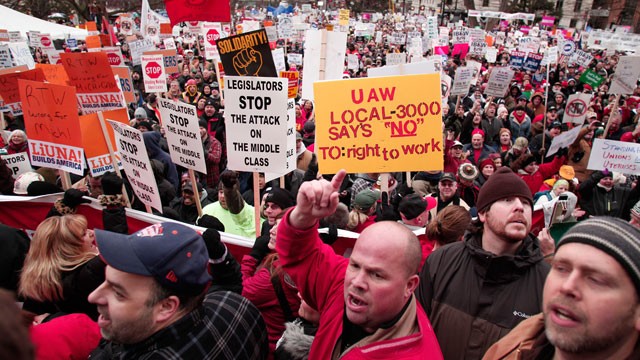You may have heard of the physical confrontations in Michigan or of legislation represented as a “right-to-work” bill being passed and signed by the Governor. If you have, many of you still might be asking “what is right-to-work legislation?” Unfortunately, the names of some of the current event issues can be misleading (fiscal cliff anyone? more on that in another post).
If you want to learn more about right-to-work legislation (and I think most of us should), then this entry is for you.

When states pass “right-to-work” laws, they are attempting to limit the power of labor unions. For the moment, attempt to set aside any preconceived notions that you have about unions. The people who pass these “right-to-work” laws claim that they will allow their states to attract new businesses, increase economic growth, and increase employment. There is only one problem with these claims, recent research shows them to be false http://www.epi.org/publication/right-to-work-michigan-economy/. The executive summary of this research states that the “right-to-work” laws have not boosted economic growth, have not attracted new business, are correlated with lower wages (both union and non-union employment), decrease the likelihood of benefits for union and non-union employees, and undermine a major element of future economic growth by reducing discretionary income.
Given these conclusions, I think we should rename the legislation as the “right to lower paying, lower benefit jobs that reduce overall spending in a local economy.” Given that name, would a politician dare support the legislation? I hope the opponents of this legislation can gather enough signatures in Michigan so that this bill will go to the ballot and the people of Michigan can decide the future economic conditions of their state.
